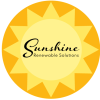Tax Exemption for Renewable Energy Generation
In March 2007, West Virginia enacted legislation (SB 441) amending its tax law concerning the business and operation (B&O) tax for wind turbines. Although SB 441 increased the taxable value of wind turbine generating capacity, the taxation level is still significantly lower than that of most other types of electricity generation. For most types of newly constructed electricity-generating units, the B&O tax is calculated by multiplying a pre-determined dollar amount by 40% of the nameplate capacity rating of the generating unit. However, the B&O tax on wind turbines is multiplied by only 12% of the nameplate capacity rating
- Read more about Tax Exemption for Renewable Energy Generation
- Log in or register to post comments

